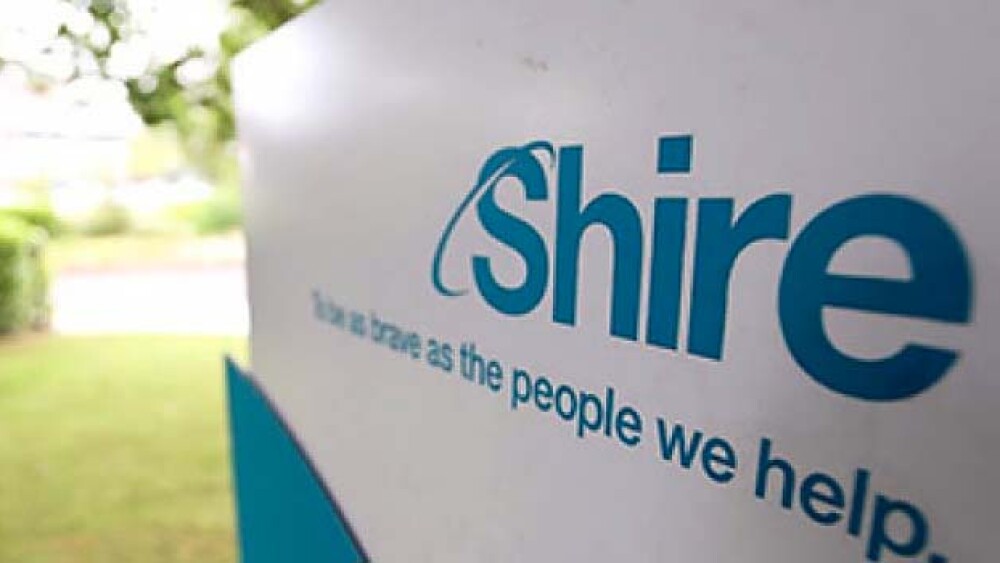Shire plc snagged approval from the U.S. Food and Drug Administration for Takhzyro (lanadelumab-flyo), a prophylaxis to prevent attacks of hereditary angioedema (HAE) in patients 12 years of age and older.
Shire plc snagged approval from the U.S. Food and Drug Administration (FDA) for Takhzyro (lanadelumab-flyo), a prophylaxis to prevent attacks of hereditary angioedema (HAE) in patients 12 years of age and older.
Analysts have predicted the drug will achieve blockbuster status, which is a good thing for both Shire and Takeda Pharmaceutical, which struck a deal to acquire Shire earlier this summer. For Shire, the deal is also reaffirming an acquisition that company made three years ago. Shire gained lanadelumab when it bought Dyax Corp. in 2015 for $5.9 billion. Dyax shareholders are going to get a nice little bonus from the FDA approval. Shire said shareholders will receive $4 per share due to the regulatory approval.
Takhzyro was approved based off multiple late-stage trials that demonstrated efficacy in treating HAE, a rare, genetic disorder estimated to affect about one in 10,000 to one in 50,000 people worldwide. The condition results in recurrent, localized edema (swelling). The areas of the body most commonly affected are the extremities, gastrointestinal tract, and upper airways. The swelling can be debilitating and painful, potentially impacting both work and education for people living with HAE. Swelling of the throat can be life-threatening due to asphyxiation. The approval of Takhzyro bolster Shire’s aging HAE pipeline, which includes Cinryze and Firazyr.
Takhzyro is a monoclonal antibody that provides targeted inhibition of plasma kallikrein, an enzyme which is chronically uncontrolled in people with HAE, to prevent attacks. The injectable medication is given to patients in a 300 mg dose every two weeks and then every four weeks afterward depending on how well the patient responds to treatment after six months. In last year’s Phase III HELP trial, results showed that patients treated with Takhzyro experienced a “statistically significant reduction in mean HAE attack frequency of 87 percent compared to placebo.” Additionally, Shire said whether patients were dosed biweekly or monthly, a significantly higher proportion of patients compared to placebo-were attack free throughout the entire 26 week study period. Additionally, in a post hoc analysis of the 16-week period from Day 70 to Day 182, 77 percent of Takhzyro patients were attack-free compared to 3 percent on placebo, Shire said.
Andreas Busch, Shire’s head of research and development, said the approval of Takhzyro gives HAE patients an “innovative treatment that works differently” than other options designed to prevent attacks.
“Based on an exploratory and post hoc analysis, after six doses of Takhzyro 300 mg every two weeks, 77 percent or nearly eight of 10 patients had zero attacks. This approval reinforces our ongoing commitment to developing novel therapies that have a meaningful impact on patients. Looking to the future, we continue to work towards our goal of a world in which those living with HAE can aim for zero attacks,” Busch said in a statement.
Anthony Castaldo, head of the U.S. Hereditary Angioedema Association, said HAE attacks can be debilitating and life-threatening. Shire’s Takhzyro provides patients with a new treatment option, he added.





